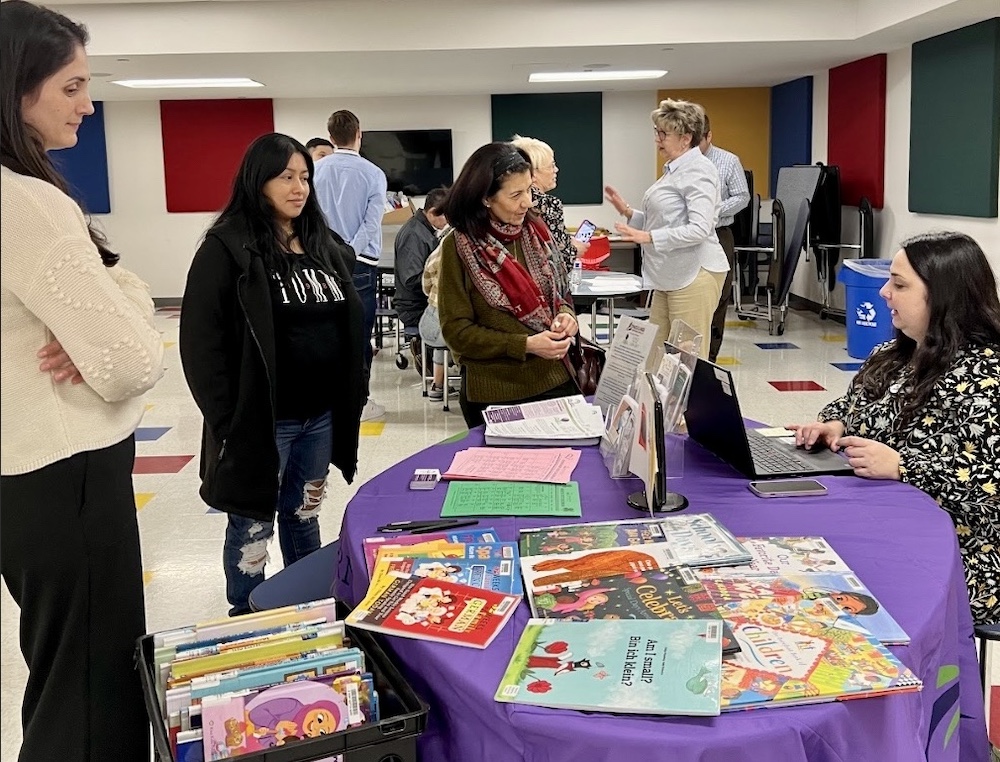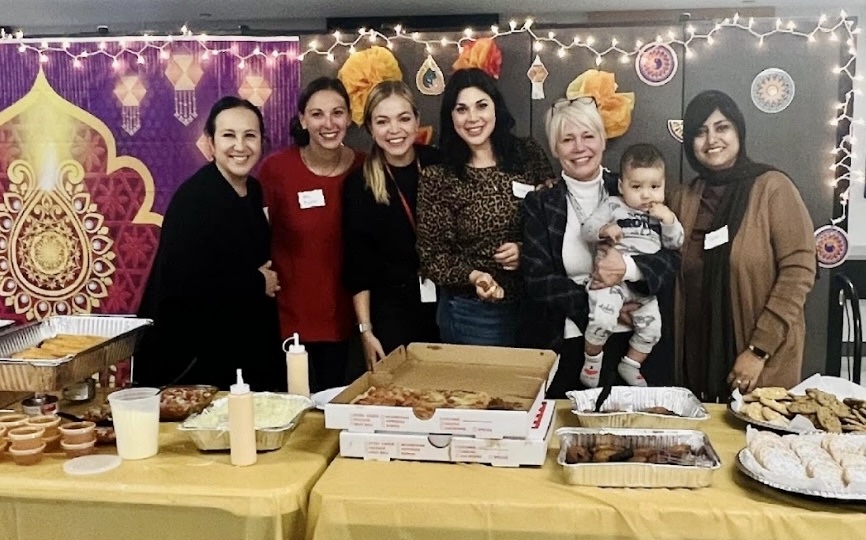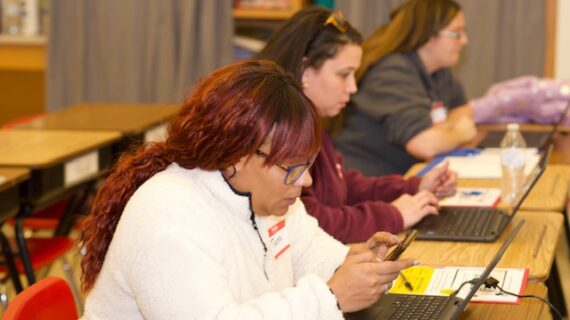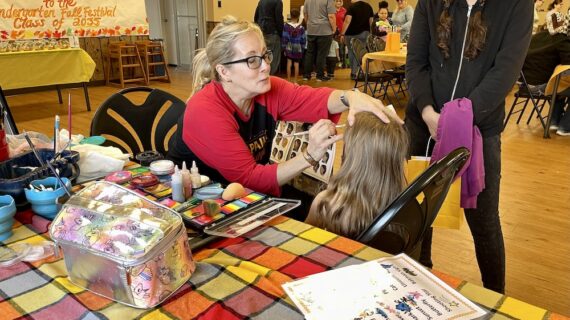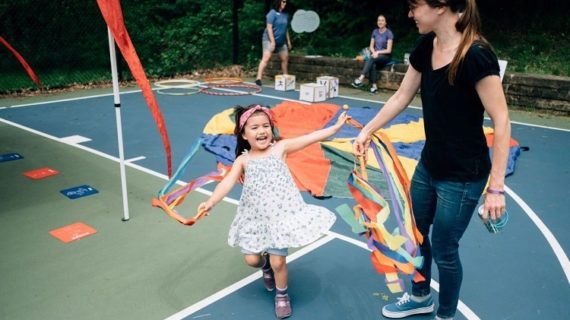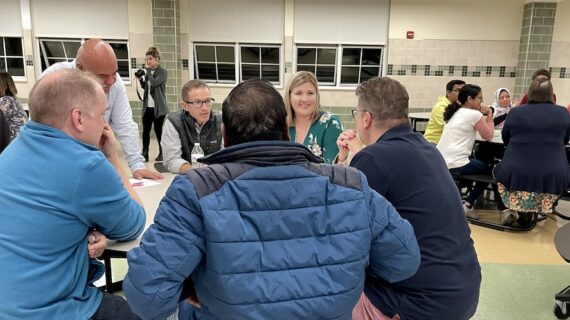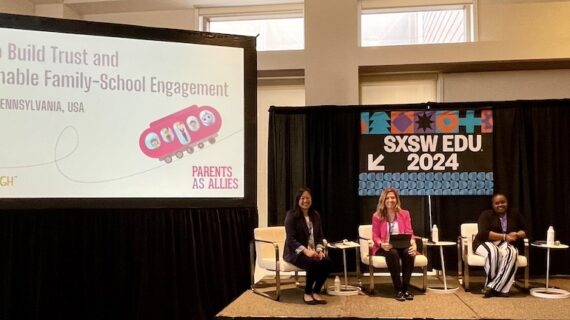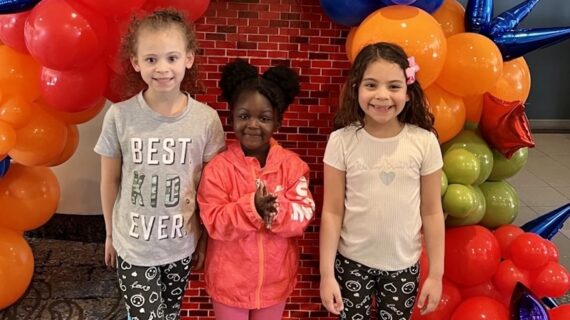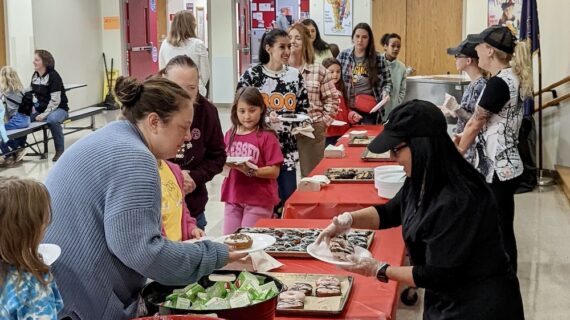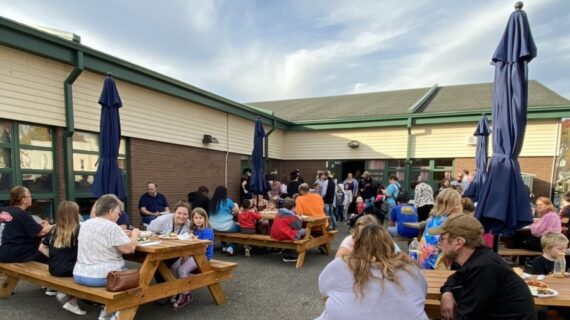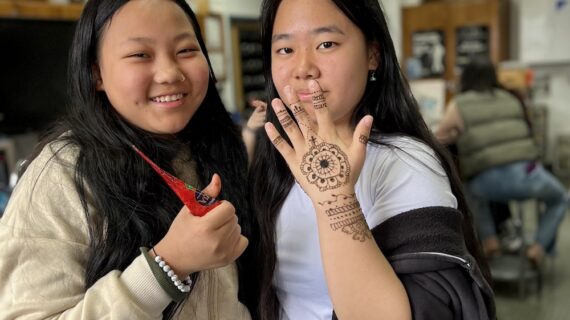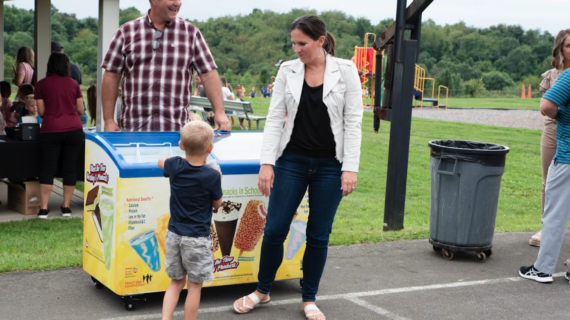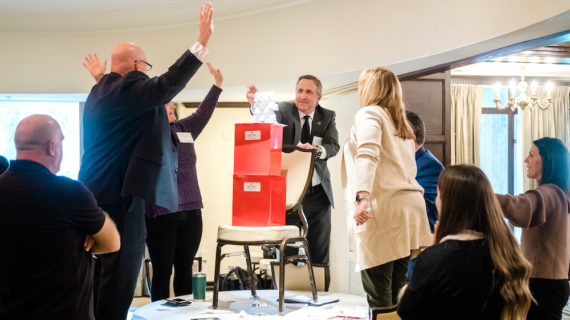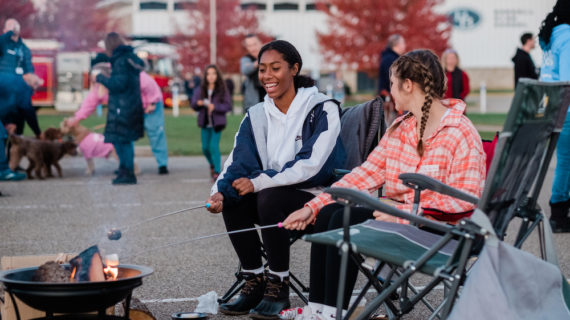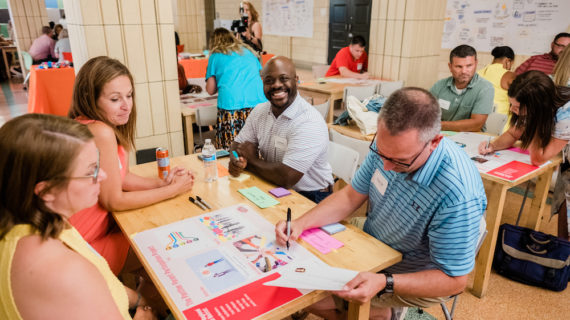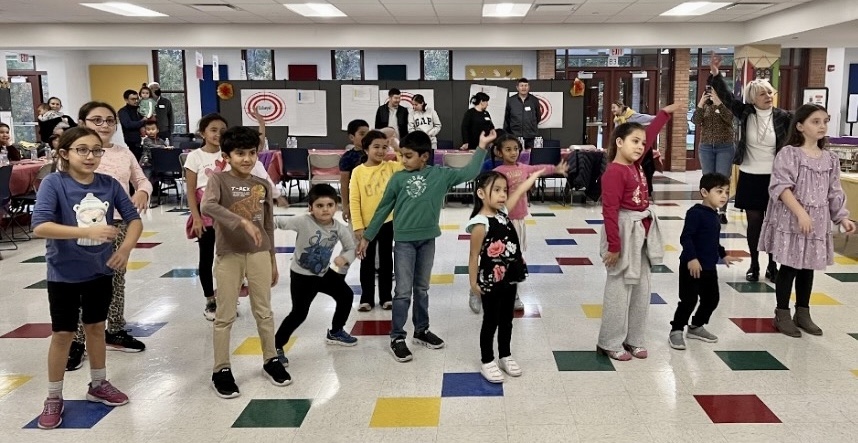
Parents as Allies: Communicating across cultures at West Allegheny
Photos courtesy of Parents as Allies/West Allegheny.
When families are new to a community, attending a bustling “open house” event at the local elementary school can be an intense experience. Unfamiliar hallways are crowded with people. New names and new faces surround them. Parents scramble to learn all about this new place where their small children are spending their days.
Now imagine doing all of that in a new country – one where you don’t speak the local language.
McKee Elementary School Principal Melissa Wagner thought a lot about that experience as her school began welcoming a growing immigrant population. “We knew we had to build relationships with the families coming in,” Wagner says. “We knew we had to build trust.”
In the two years since Wagner’s district, West Allegheny, joined the Parents as Allies (PAA) family-school engagement project, that trust has slowly grown. Parents who are new to speaking English are welcomed warmly at McKee — and offered assistance in learning English – thanks to the efforts of West Allegheny’s PAA team.
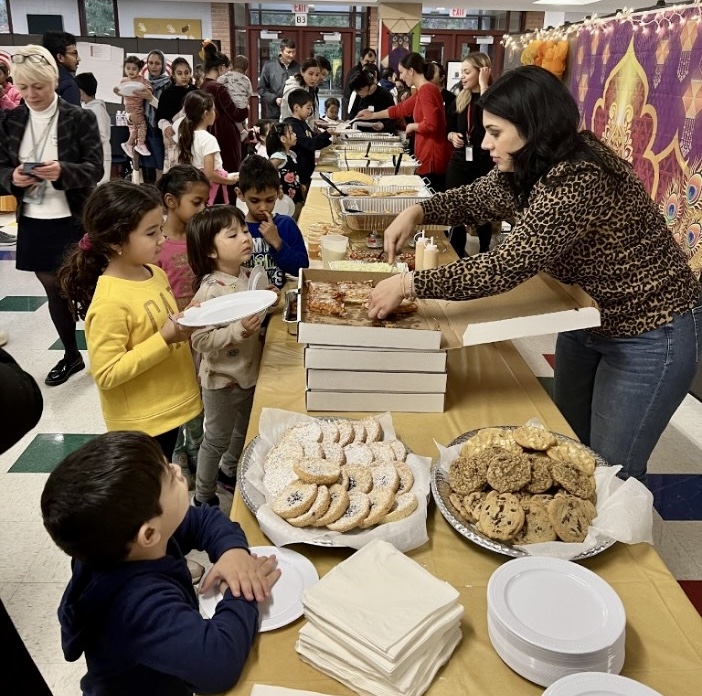
WHAT DID THEY TRY?
The work began with simple questions, asked of parents when they visited the school. During a tour of the building, families visited various stations where they could respond in their own language to questions like these: What are your hopes for your children at our school? What are your fears? And what are your needs?
Not surprisingly, Wagner says, the hopes and fears they shared were the same ones common to families everywhere. They worried about how their children were doing, not just academically but also personally. Are they beginning to speak in class? Are they smiling? Are they making friends?
Parents were also clear that they wanted to know how best to communicate with their child’s teacher throughout the school year, so they could build a real connection.
With all that in mind, West Allegheny’s PAA team dreamed up an event called “Dinner and Dialogue.” Though this event in the fall of 2022 was timed to the celebration of the Hindu festival of Diwali, the team served food from every culture represented at McKee.
Kids, parents, teachers and school staff enjoyed eating together and learning a dance from India with the help of the music teacher. The kids then went to the gym and played games with bilingual high school students who served as translators, while the adults gathered for a more intimate conversation in the cafeteria.
It was unlike anything the school had previously hosted for new families. The message was clear: You are important to us and we’re glad you’re here.
There was a huge turnout for the event, Wagner says, and people clearly appreciated that the school was letting new families know how important they are to their new community.
“I was blown away by the energy in the room,” she says.
With help from student interpreters, the group really communicated that night. Among the subjects that came up: Parents wanted help learning English and wanted to connect more fully with their new community.
The school responded by planning another event where parents could get help with everything from learning all about the PTA to filing out various forms for school. And since then, the channels of communication between new families and the West Allegheny schools have continued to grow.
WHAT WOULD THEY TELL OTHER SCHOOLS?
- Family-school engagement is worth the effort. “You need to start talking with your families,” Wagner says.
- Find a strong group of committed, like-minded, like-hearted people.” They have to know and understand how important this work is, especially if you’re working with a marginalized group.
- Listen. Don’t try to determine what the needs are. Work with trusted interpreters and get voices to the table in a meaningful way.
- You don’t need to know exactly how you’ll pursue family-school engagement before you begin. You can design your plans along the way.
